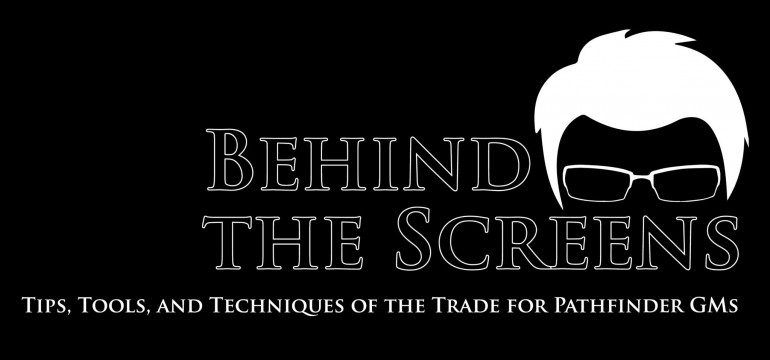So you’ve got your hands on Pathfinder Unchained. You’ve read through it, or maybe heard us talk about some of the new systems on the show. You like the idea of potentially adding some of these rule sets to you game. Depending on your group, your players might enthusiastically welcome your new rules proposals. Others might resist the idea of changing the status quo. In today’s article, I’m going to focus on the latter situation. What to do if you meet player resistance when you bring up adding new rules to a game, whether the rules are from a book like Unchained or brew up entirely by you.
1) Be rules proficient
I can’t stress this enough. If you want to introduce a new rule or subsystem, you’d better know how it works inside and out first. You should know how the rule works and what to do when it comes up during a game. Further, you should be prepared to adjudicate how the new rule interacts with existing ones. This isn’t to say that you need to be a rules guru. Although rules expertise can do a lot to solidify your position with obstinate players.
A great test for this is to try and explain the rule to a player using your own words without referencing the rules text. If you can convey the gist of the rule in a concise fashion, say 5 sentences or less, consider yourself proficient with that rule.
2) Be excited
If you’re excited about a rule, show it! Your players are more likely to be open to adding rule to the game if they latch on to your obvious enthusiasm.
3) Consider the impact
Every new addition to the rule set is literally game changing. But some additions can have a larger magnitude of change than others. Adding Wound Thresholds is a small addition in terms of rules language and set up. But it can have a major effect on your game in each and every combat and is an enormous amount of upkeep and numbers juggling. Remember that combats are best if they’re quick, intense, and exciting. Nothing bogs down that sort of narrative like having to do extra math. Be mindful of the type of impact that a rules system might have on your game and be ready to make changes if they end up having negative effects.
4) RetConning
Be prepared to retcon rules systems that didn’t work out. Maybe you were really jazzed about the Words of Power system in Ultimate Magic. But then you go to implement it and you receive a less-than-warm reception from your players. Of maybe you really like the Background Skills and Skill Unlock systems. So you give all your players bonus skill points. But then someone like Alex ruins it for everyone by using to to max out their Craft Ranks and starts busting out Wondrous Items in 1/5th the time. Well, maybe those rules aren’t for your group. Or maybe you should talk about rules and expectations with your players.
5) Grace periods are your friends
I have a process for introducing new materials to my group. At the end of a session I’ll bring up that I want to add a new rule or something to the game. If I don’t have hand outs for the rules then and there I’ll follow up with an email afterwards to remind my players and give them access to the rules I’m thinking about implementing. Next session the new rule goes into effect and we see how it fits. Then I open it up to feedback either in public or in private to see what people think. If the majority is in favor, we keep it. If not we see if it’s salvageable or if it would be better of scrapping it.
This method ends up working pretty well in that my group has enough time to digest the new rules language and we all get to see how it figures into the game. The downside is that it takes a while for a new rule to be incorporated into the game. I also want to note that as the GM I make the unilateral decision to introduce a new rule and we play test it. But once we’ve tried it out, my player’s opinions and thoughts weigh just as much as my own when moving forward. Just because I’m “running the group” doesn’t mean that I’m a dictator. According to the social contract, it’s a collaborative story building game. So we all get an equal say on how the rules are formed, used, and ultimately shape our narrative.
Do you have an experience adding or removing rules elements from your group? Are you particularly excited about a rules system and want to share? Tell us about it in the comments section below!






Leave a Reply